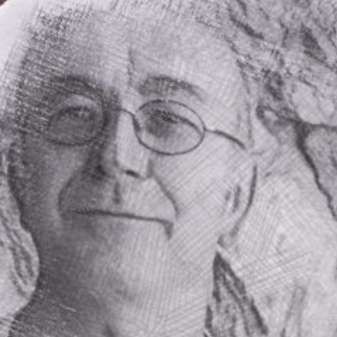Paradox is unsurprising in the works of a composer who said: "The more constraints one imposes, the more one frees one's self of the chains that shackle the spirit." The often distancing neoclassical idiom seemed unable to deny Stravinsky's The Rake's Progress (1951) emotionally engaging and affecting music. Moreover, although essentially a tragedy, tracking the hubristic Tom Rakewell's demise from fatal flaw to death in bedlam, there are many light moments.
A co-production with Teatro Regio Torino, this performance really hit the spot on all levels. Staff Producer Dafydd Burne-Jones, in his conversational pre-performance talk, instilled confidence by outlining the contribution and pedigree of those involved, including the visionary direction by David McVicar, who requested this work for his return to the company; and the ingenious design by John Macfarlane. He also touched upon another paradox: that librettists W.H. Auden and Chester Kallman's dense syntax somehow ends up being quite singable. Could this be the genius of the eternal chameleon, Stravinsky, setting words in his third language, in his third homeland?
The plot follows the storyline of William Hogarth's 1732-33 series of eight paintings A Rake's Progress, which also informed the feel of the production. These are very full canvases and, when appropriate to the action, so too is the stage, with so much going on that one couldn't possibly take everything in. Top marks to the chorus (and costumes) for this. The managed musical and physical chaos of crowd scenes – be they auction, brothel or bedlam – was wonderful. The paintings and libretto part company in the addition of Nick Shadow (the Devil), excellently played by bass Steven Page. Shadow's presence enables the Faustian pact at the opera's centre.
Whenever Rakewell wishes for something, Shadow appears and wishes are soon materialised – such as the timely bequest from an unknown uncle which sets the plot in motion. Rakewell heads for London to put this money to work, effectively abandoning his fiancée, Anne Trulove, excellently played by Carolyn Sampson in her Scottish Opera debut. Shadow offers to work as manservant for a year and a day, after which time Rakewell may pay him what he considers fair.
The money squandered on whoring and gambling, our beggared hero is eventually led to his waiting grave where Shadow finally reveals himself and his invoice – for Rakewell's soul. Somewhat implausibly, Shadow feels pity and offers Rakewell one last gamble at cards for his soul. Exposed, bitonal harpsichord music, deftly played by Ruth Wilkinson, underlined the game's tension. Shadow loses. Retiring 'below-stairs' humiliated, in one of the production's wonderfully, wretchedly empty scenes, Shadow curses Rakewell to end his days in insanity.
Anne, who has never truly given up on Tom, makes one final appearance. Realising that insanity has eclipsed the man she loved, she departs and he dies alone. Several things about this scene were especially poignant. The scenery mirrored the opening, the central deathbed now replacing the arbour seat in the Truloves' garden, where the couple profess their love. Stravinsky's tender orchestration, beautifully played by the Scottish Opera Orchestra under Sian Edwards, seemed perfectly attuned to the bruised psychology of the scene. Lines delivered by Tom and Anne from prone positions clinched this moment of human dereliction. Our emotional reaction to Anne Trulove was as constant as her love for Tom – compassion for her undeserved fate. Rakewell required more complex treatment. A magical combination of writing, singing and acting had, during the course of the drama, set us against him. Yet, his sorrowful regret was so painfully depicted by tenor Edgaras Montvidas that it was impossible not to be moved to pity.
The other principals were commendable in their scenes. Colin Judson's larger-than-life Sellem, the auctioneer, provided parodying punctuation to the drama – aided by the infectiously animated chorus. Graeme Broadbent's broad tone lent a fittingly patrician timbre to the voice of Anne Trulove's concerned father. Such concerns were well-founded: as, for financial gain, Rakewell marries the bearded Baba the Turk, played by Leah-Marian Jones, whose crockery-smashing, furniture-tossing rant at her quickly disengaged husband exuded comedy. Top marks to Baba's two ape-servants for their primatological homework!
The lightest scene of all was the Epilogue. Demise done with, the characters stemmed our applause to reflect, with an odd jauntiness, on the moral: "For idle hands and hearts and minds, The Devil finds a work to do; A work, dear Sir, fair Madam, for you and you." As one might imagine, the cast pointed at the audience on the first "you" but then at themselves on the second one, acknowledging that the bearer of any such tale is equally prone to the dangers therein.
This fantastic production of Stravinsky's "difficult opera" remains with me long after the drop curtain – featuring a grinning "memento mori" skeleton – fell for the final time.


